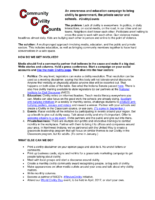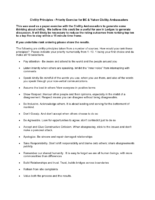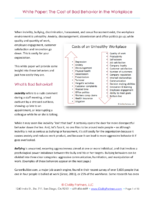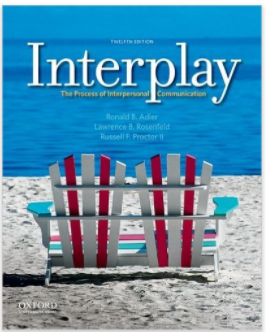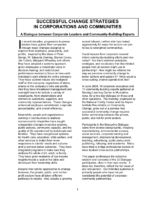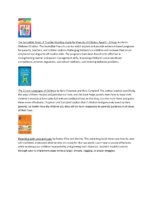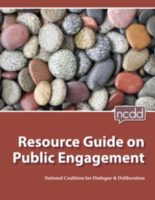An awareness and education campaign to bring civility to government, the private sector and schools.
Priority Exercise for Civility Ambassadors
Cost of Bad Behaviour, Catherine M. Mattice, MA (c) Civility Partners, LLC
Interplay: The Process of Interpersonal Communication 12th Edition ISBN-13: 978-0199827428
SUCCESSFUL CHANGE STRATEGIES IN CORPORATIONS AND COMMUNITIES A Dialogue between Corporate Leaders and Community-Building Experts – 2004
Civility Assessment, by Christine Porath. URL: http://www.christineporath.com/assess-yourself/
California – Masonic Center for Youth and Families Reading Recommendations, 2017
Resource Guide on Public Engagement by National Coalition for Dialogue and Deliberation, October 11, 2010
Civility Tools and Resources – Civility Toolkit
A collection of various civility tools and resources for the community.
- Web site: http://www.civilityresources.com/Civility-Resources.html
Fighting to Understand
The mission of Fighting To Understand is to make seemingly complicated topics into “simply complicated.” We do this by forming a collaborative cross-section of “regular” people to fight to understand a topic, in as much complexity as we can muster. We then present the findings to other regular people. Our maiden voyage: Is America Broken? Our founding principle includes the belief that “regular” people of goodwill, paying attention while interacting with life, can act as a jury or a group of scientists in search of holistic understanding.
- Web site: http://fighting-to-understand.us
Living Room Conversations
A community of Americans dedicated to connecting across divides
- Web site: https://livingroomconversations.org/
Principles of engagement
The Principles of Engagement are guideposts for attracting collaborators and establishing relationships among them.
- View everyone in positive terms.
- Develop a common language.
- Build strong relationships and trust.
- Remember our shared humanity.
- Value both the process and the results.
- Look both within and outside the community for guidance.
- Web site: https://livingroomconversations.org/
- Web site: http://fighting-to-understand.us
Classroom Resources
Civility in the Classroom program information sheet. For futher information email Summer Moore at summer.moore@nwi.com
Civility Presentation for public schools, focused on Students. By Russ Charvonia, Past Grand Master of California. Presentation 2018.
Civility presentation for Teachers. Part of the Civility Classroom presentation by Past Grand Master Russ Charvonia. Dated 2018

